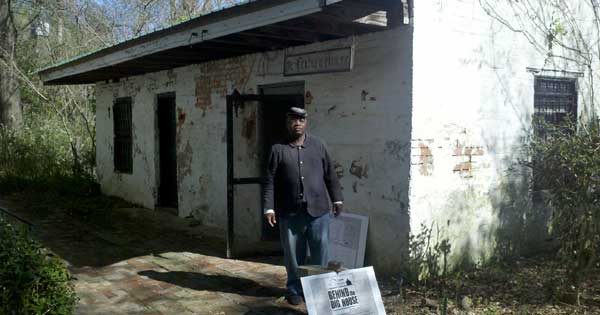
Four years ago, when Joseph McGill Jr. began sleeping on the floors of former slave cabins, he contemplated the labor his ancestors performed and dreamed about what it would be like to run for freedom. More than 50 overnight stays in 12 states later, the Slave Dwelling Project has grown into a clearinghouse for information about American slave quarters.
McGill, a historical consultant at Magnolia Plantation in Charleston, South Carolina, and a Civil War reenactor, thinks we undervalue slave dwellings. “We tend to tell our history in the buildings that we preserve. If we choose only to preserve those places where the heroes lived,” McGill says, “we’re short-selling our history.” He says the not-for-profit Slave Dwelling Project is not about reparations, ghost hunting, or searching for artifacts. The ultimate goal is to honor the slaves who lived in these buildings by telling their stories. Many of the thousands of slave quarters that once dotted the United States have been torn down or are in disrepair. Others, converted to garages, storage sheds, or guesthouses, do not acknowledge the buildings’ inglorious pasts.
From September 18 to 20, the Slave Dwelling Project will host its first annual conference in Savannah, Georgia. McGill hopes to bring together more than 300 people, including current owners of slave dwellings, to encourage further preservation and interpretation.
This year McGill will add Tennessee and Massachusetts to his travel log. “Now I can hardly stay in any of these places alone,” he says. “Folks stand in line to join me.”

